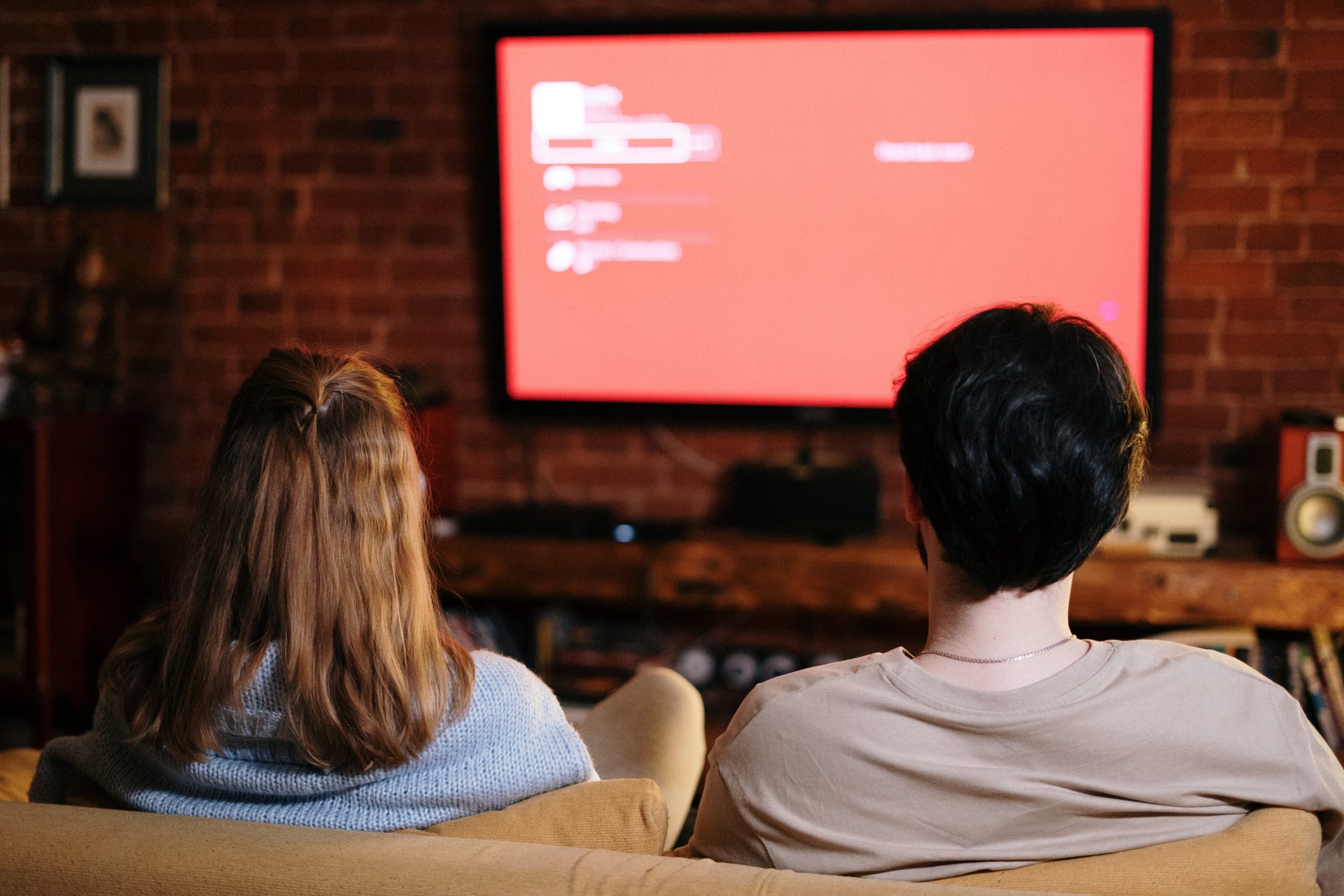Do you worry that your sex drive is low? Here’s how to tell…
From vibrators to lingerie, it’s now wonderfully normal to open up Instagram and see women talking about sexuality and their enjoyment of sex. I’d guess that at least half of the influencers I follow on Instagram have done spon con for a sexual wellbeing company or posts normalising taboo areas of their sex lives.
That’s in part down to the people I follow and the all-powerful algorithm, but it is also reflective of continually shifting attitudes towards female sexuality. Gone are the days of sex being seen as something only men could enjoy – a narrative that was still ongoing into the 00s. These days,it’s common to see women online having open conversations about who, why and when they’re doing it.
But we can’t ignore the fact that offline, some of us are confused about how our own sex lives should be. And the most common concern I hear is that we’re not getting enough of it.
You may also like
“I investigated Goop’s new DTF supplement to see if it really boosts your sex drive”
“I used to be so embarrassed as a lot of my friends would talk about having sex every day, and I just couldn’t relate – and nor did I want the sex lives they were having,” Lauren Ross* tells me. “I didn’t really know about pleasurable sex for most of my younger years. When I was in my early 20s I suffered really badly from vaginismus, so sex was painful, and I was on the pill, so my libido was low.
“Now I’m engaged to someone 15 years older than me and my sex drive has definitely increased, but the age gap has its issues – my libido is a lot higher than my partner’s. Plus, we’re both on antidepressants and lead really busy lives, so our libidos fluctuate.”

Libby Smith* is in the same camp. She says she’s always worried that she’s not doing it right and not doing it enough. “I was single for three years and I told myself I should be going out having sex all the time because that’s what single people do. I bought myself a sex toy because all of my friends had them. But I personally really wasn’t bothered, and I’ve spent the majority of my life thinking I’m a weirdo as it seems everyone has high sex drives and no one ever talks about the reality of it,” she says.
Defining a ‘normal’ sex drive
There’s no shortage of stats about how often people have sex. A 2020 YouGov survey found that 27% of the population have sex in any given week, including 11% who do it once, 7% who manage twice and 9% who have at least three sessions.
Research from the Kinsey institute the year before found that people aged 18-29 have sex an average of 112 times per year – around twice a week; 30-39-year-olds have sex around 86 times per year, which averages out at 1.6 times a week, and those in the 40 to 49 age group are at it 69 times per year.
You may also like
Sex drive and antidepressants: women tell us how medication affects their sex lives
These numbers are meaningless, says Cecile Gasnault, brand director of sex toy brand Smile Makers and founder of Vulva Talks. “You have lots of people under those averages and many people above,” she says. “These stats simplifies our understanding of sex and of libido in a way that is completely inaccessible for us, and it puts an objective target on our sex lives without looking at the real authentic way that people are experiencing sex.”
To Gasnault, there is no population ‘normal’, there is only what is normal for the individual. “There are people who are asexual, which means they don’t have a desire for sex, and that there’s nothing abnormal about that. There are a lot of people who have high sex drives compared to others, and that’s normal for them.
“The question shouldn’t be: ‘Is there something different about me?’ Instead, we should be asking if people’s sex drives are satisfying for them. Does it make them feel happy? Do they feel like there’s a disconnect between their sex drive and their partner’s sex drive that’s creating tension in the relationship? How can we be in tune with our libido in a way that serves us?”
Having our identity so closely linked with our libido is also pointless, she says, as our sex drive fluctuates throughout our life. “There are big moments where changes are going to have an impact on our sex drive,” she says. Things like puberty, where our sexual hormones skyrocket, or menopause and post-pregnancy, when hormones drop, are times when you might expect changes to your libido.
But monthly and weekly changes are expected too. Those who have natural menstrual cycles have been shown to feel hornier during ovulation, around two weeks after their period, when progesterone spikes and they are at their most fertile.
And stress can also hugely change how much sex we want. “The basic physiological reason is that the stress hormone cortisol interacts with testosterone and progesterone, the hormones that play a role in our sex drive. The secondary impact of stress is psychological. We’re more in our mind, we feel less connected to our partners or to our own bodies, and that can have an impact on our desire for sex,” says Gasnault.
You may also like
How does stress impact the body? The basics of stress, explained
If you notice changes in your sex drive that don’t feel normal to you, it is still worth going to a doctor. “These things can be a sign of chronic stress, hormonal problems or underlying health conditions that should be checked by your GP,” says Gasnault.
And the NHS also points out that a loss of libido can be a defence mechanism by the body to protect it from painful sex or relationship problems. Often, changes in your libido are masking else, so talk to an expert if you are concerned about your sexual health or desire.
Is everyone getting more than us?
In conversations with women about libido, it’s apparent that most of us are more worried about not getting enough than getting too much. In fact, only one person we speak to admits that they think their sex drive is “higher than 99% of my friends”. But it can’t be the case that all of us are below average – so why do we feel like it?
“The representation of sexing in the media is everywhere,” says Gasnault. “We live in a hyper-sexualised society that puts sex in the centre of everything, including almost all purchasing behaviours. The female body is objectified and sexualised at all times, and it’s normal that we feel a disconnect between what we actually experience in our authentic life versus what we see on these platforms.”

While online conversations are undoubtedly useful for normalising sexual pleasure, the bombardment also leads to comparison. Ross also says that she doesn’t think digital sex-positivity works in the real world, saying: “I will consume super sex-positive content about vibrators, pegging, all that sort of thing… but I don’t think I’ve ever discussed those things with my best mates. It’s almost like the conversations stay online among strangers, and that’s it,” says Ross.
This is the problem, according to Gasnault. “It’s so hard but also so great when we are able to have honest conversations with our friends or other people about what’s actually happening in other people’s bedrooms. More often than not, we realise that it’s very, very different from what we think is going on,” she says.
Sex and the single woman
The other place we’re falling short in the conversation on libido is that we only see it through the lens of how it relates to others – but our libido isn’t just something that exists when we are having sex with a partner.
You may also like
5 sex toys Lily Allen wants you to know about
“Many people only think about their libido when it becomes a problem or when there’s a mismatch with the person we’re having sex with. When we’re single or apart from our sexual partners, there’s not the mirror effect that makes us compare our needs to that of others,” says Gasnault. “Generally, society doesn’t view masturbation as a ‘proper’ sexual activity, either, so there’s less research and conversation about the how, when and why.”
That seems to be changing, but it’s important to understand your sex drive as an individual, as well as outside of other people. “Understanding your desire sex, including sex with yourself, is a crucial part of health and wellness,” says Gasnault.
So while there shouldn’t be a goal for your libido, getting to know it and working out if your sex drive is serving you might just be the most important thing you do for your mind and body.
For more health and wellness advice, sign up to the Strong Woman Training Club.
Images: Getty/Pexels
Source: Read Full Article
